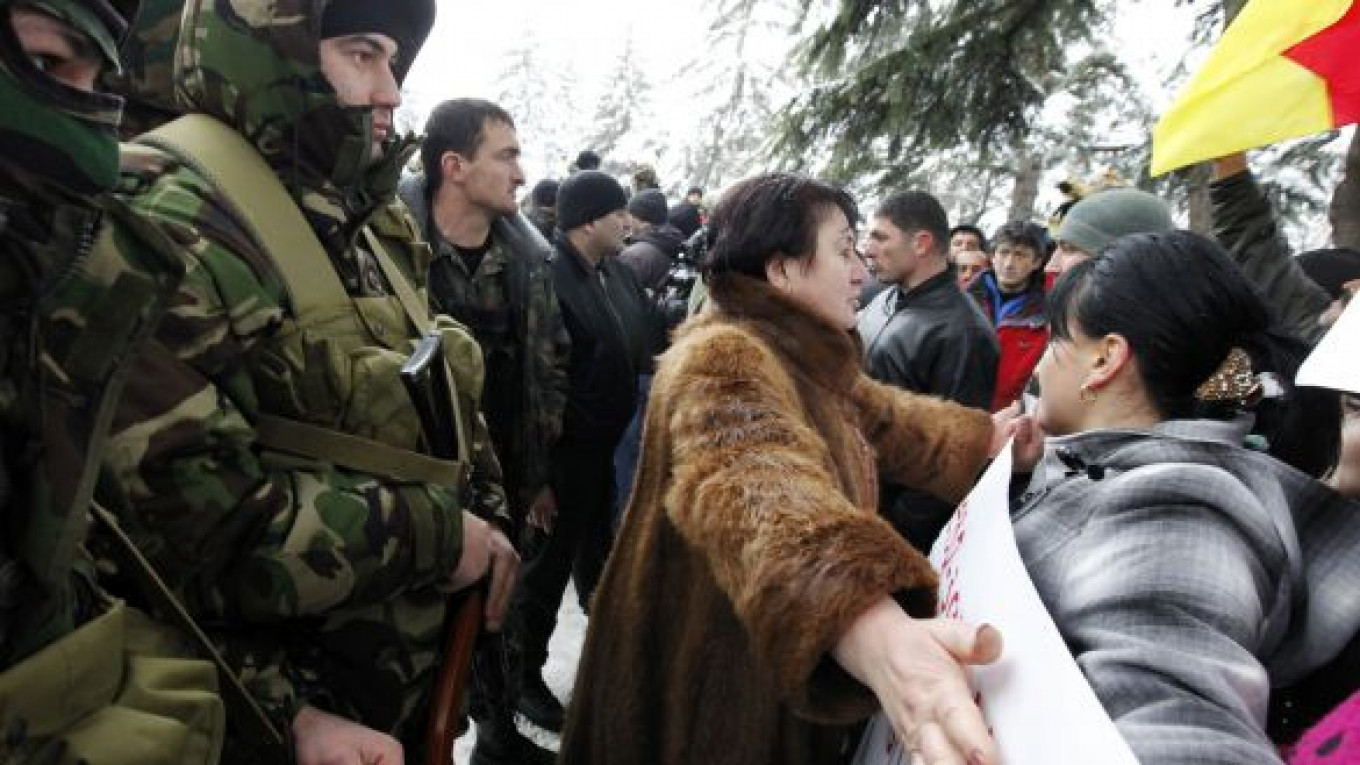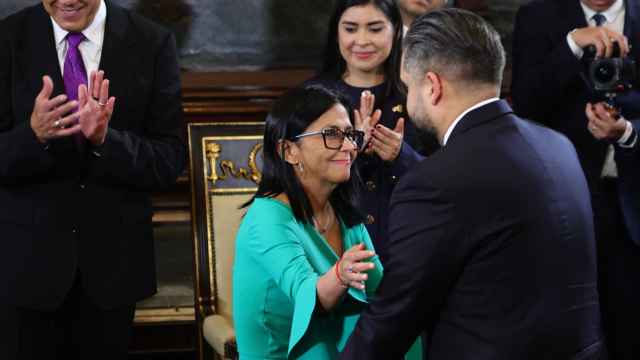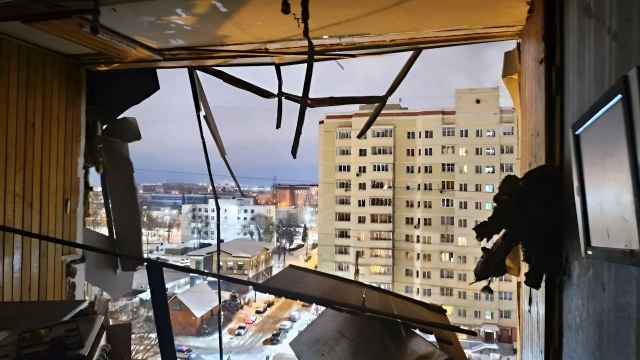TSKHINVALI, Georgia — A disputed presidential election in Georgia's breakaway region of South Ossetia descended into chaos on Wednesday after one of two candidates declared herself the winner, challenging a court order that had ruled the vote invalid.
Police shot into the air as more than a thousand supporters of former Education Minister Alla Dzhioyeva, 62, swarmed around the region's voting authorities demanding that she be recognized as leader of the tiny territory, which was the focus of a brief 2008 war between Russia and Georgia.
Moscow recognized the region as independent shortly after the conflict, although most of the world and Georgia consider it part of Georgian sovereign territory.
Dzhioyeva, whom preliminary results showed to be leading in the poll against Anatoly Bibilov, 41, the region's emergencies minister, said she was the rightful president-elect on Wednesday and said she would create her own executive advisory board.
While both candidates share pro-Kremlin sympathies, Dzhioyeva's supporters point to a meeting between Bibilov and President Dmitry Medvedev earlier this month as proof that he has Moscow's open backing. Bibilov dismisses the claim.
"Alla Dzhioyeva declared herself president of the country. Her first decision was to create a state council," RIA-Novosti quoted Dzhioyeva's spokeswoman as saying.
The announcement is a direct challenge to a court decision on Tuesday that threw out the election results after Bibilov accused his rival of vote violations.
While Bibilov has said South Ossetia should become part of Russia by unifying with North Ossetia, a Russian republic across the border whose population is mostly ethnic Ossetian, Dzhioyeva says South Ossetia should be independent.
Moscow said Wednesday that it was "attentively following the development of the events in the friendly, neighboring government."
"We are interested that a peaceful, stable situation is maintained in the young republic and that political processes develop exclusively in a legal framework," the Foreign Ministry said in a statement.
The winner would become South Ossetia's first new president since the war three years ago, after which Venezuela, Nicaragua and the Pacific island nation of Nauru followed Moscow's move to recognize the territory as independent.
South Ossetia, along with another breakaway Georgian region, Abkhazia, has governed itself with Russian backing since separatist wars after the 1991 Soviet collapse.
Other countries consider the regions part of Georgia, which has dismissed the South Ossetian election as illegitimate.
The election's outcome is unlikely to alter South Ossetia's dependence on Russia as an economic lifeline and military protector of the landlocked region with a population of about 30,000.
The regional parliament said it had set the new elections for March 25, with the court urging Dzhioyeva to not participate.
A Message from The Moscow Times:
Dear readers,
We are facing unprecedented challenges. Russia's Prosecutor General's Office has designated The Moscow Times as an "undesirable" organization, criminalizing our work and putting our staff at risk of prosecution. This follows our earlier unjust labeling as a "foreign agent."
These actions are direct attempts to silence independent journalism in Russia. The authorities claim our work "discredits the decisions of the Russian leadership." We see things differently: we strive to provide accurate, unbiased reporting on Russia.
We, the journalists of The Moscow Times, refuse to be silenced. But to continue our work, we need your help.
Your support, no matter how small, makes a world of difference. If you can, please support us monthly starting from just $2. It's quick to set up, and every contribution makes a significant impact.
By supporting The Moscow Times, you're defending open, independent journalism in the face of repression. Thank you for standing with us.
Remind me later.






